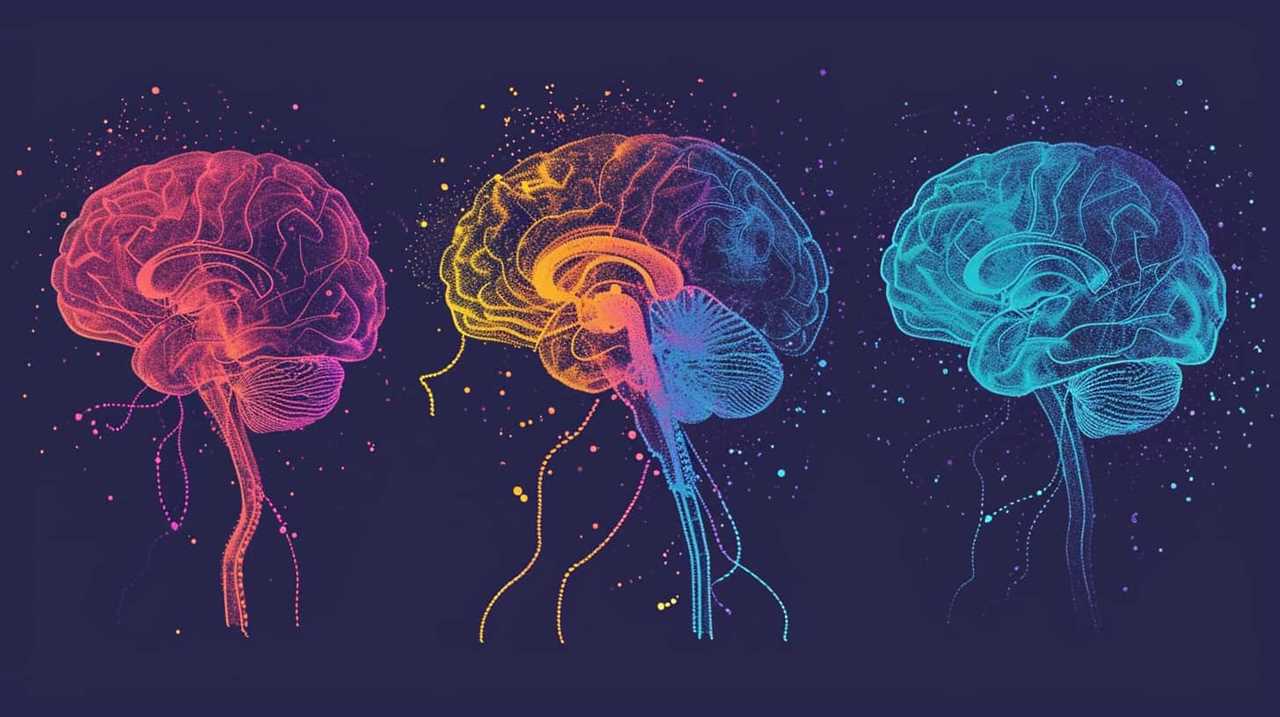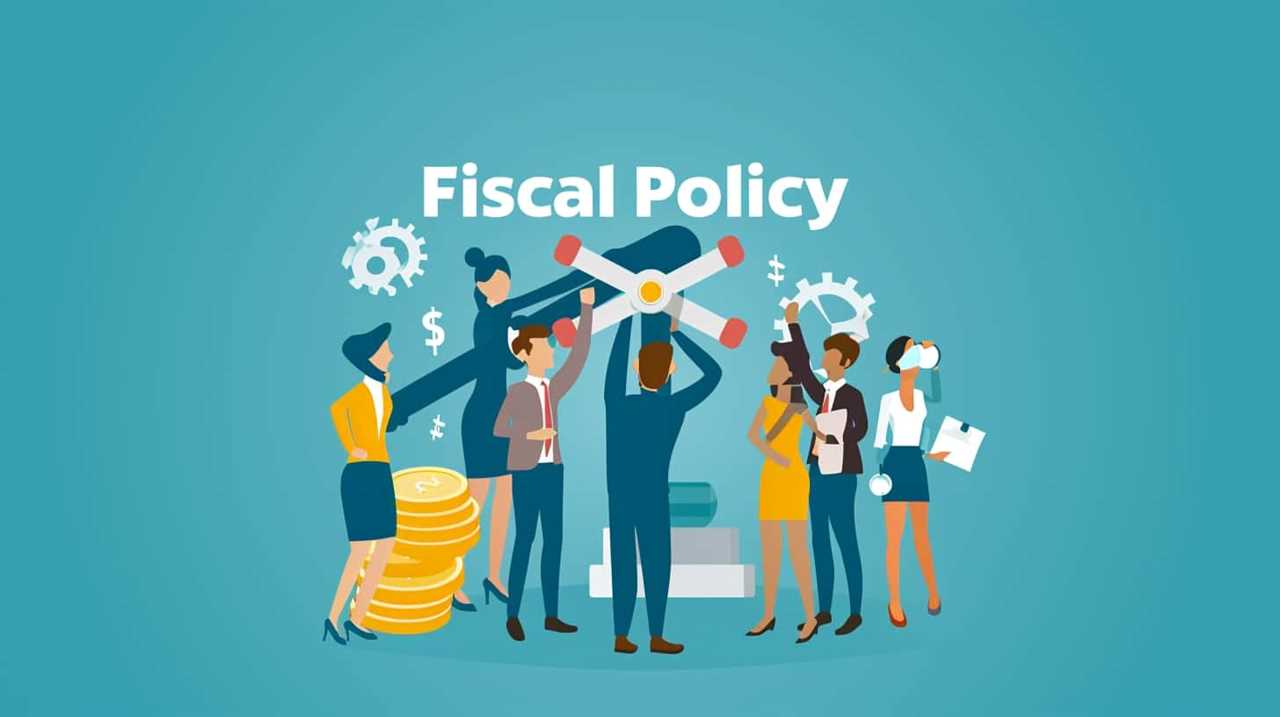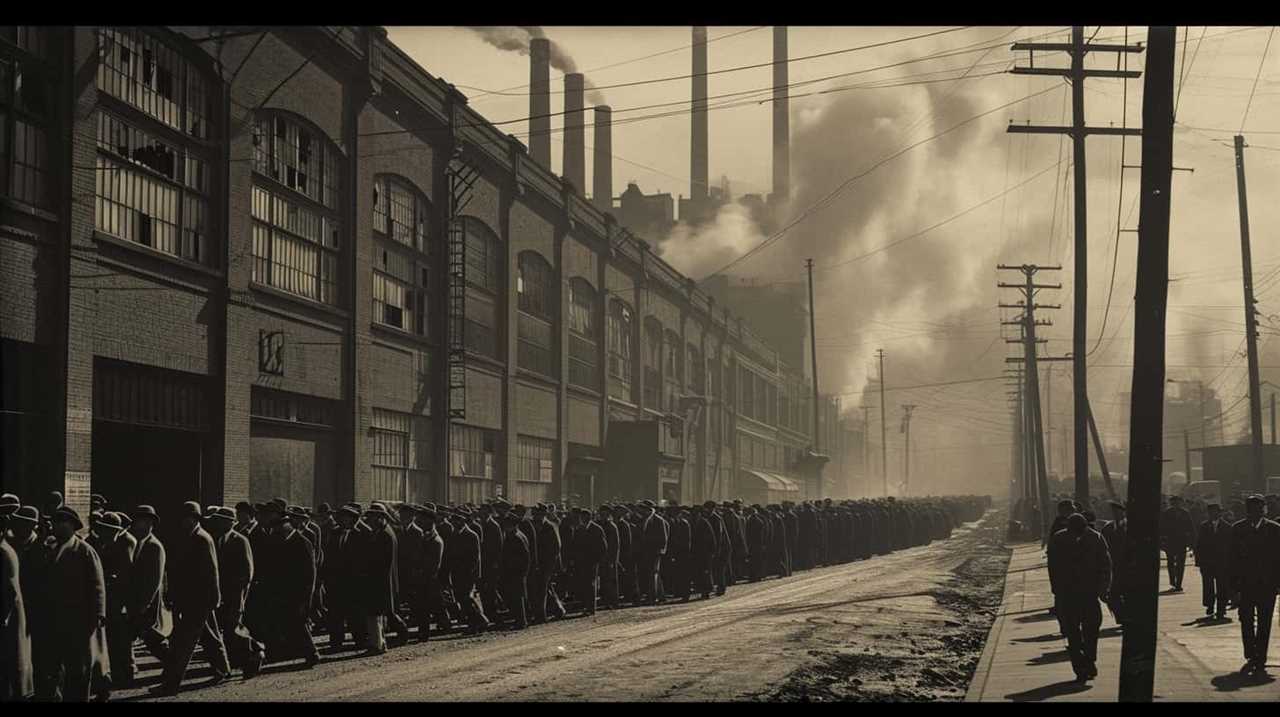We are delving deep into economic theory to challenge the prevailing currents of neoliberalism.
In this exploration, we will be guided by the insights of pioneering economic thinkers, who have dared to question the status quo and offer alternative perspectives.
Think of it as a journey through uncharted territory, where innovation and fresh ideas are our compass.
We won’t be shying away from the tough questions, nor will we be content with superficial answers.

Instead, we will delve into the depths of economic thought, uncovering hidden gems and thought-provoking arguments.
So, join us as we embark on this intellectual adventure, where we challenge neoliberalism and seek to broaden our understanding of the economic world.
Key Takeaways
- Neoliberalism promotes free markets and minimal government intervention, with Milton Friedman advocating for self-interest in the marketplace benefiting society as a whole.
- Government intervention is necessary to address market failures, but excessive intervention can hinder economic growth and individual freedom.
- Government intervention can have positive and negative effects on economic growth, with a balance needed between intervention and free market principles for sustainable and innovative growth.
- Competition is crucial for economic efficiency, fostering innovation, lower costs, increased productivity, and improved living standards. Neoliberalism values competition as a driver of economic prosperity.
Neoliberalism: Milton Friedman’s Free Market Perspective
In our exploration of neoliberalism, we delve into the free market perspective of economist Milton Friedman. Friedman’s influence on neoliberalism and economic inequality can’t be overstated. He championed the idea that free markets, with minimal government intervention, are the most efficient way to allocate resources and promote economic growth.
Friedman argued that government intervention in the economy often leads to unintended consequences and inefficiencies. He believed that individuals should be free to pursue their own self-interests in the marketplace, which would ultimately lead to the best outcomes for society as a whole. This perspective aligns with the core tenets of neoliberalism, which emphasizes the importance of individual freedom and limited government interference.

However, critics argue that Friedman’s free market approach has contributed to widening economic inequality. They claim that neoliberal policies, such as deregulation and tax cuts for the wealthy, have disproportionately benefited the rich while leaving the working class behind. This has led to a concentration of wealth and power in the hands of a few, exacerbating societal divisions.
While Friedman’s ideas have shaped neoliberalism and influenced economic policies around the world, it’s important to critically examine their implications. As we continue our exploration of neoliberalism, we’ll delve further into the impact of Friedman’s free market perspective on economic inequality and consider alternative approaches that prioritize a more equitable distribution of wealth and opportunities.
Friedman’s Critique of Government Intervention
Friedman’s critique of government intervention stems from his advocacy for free markets as the most efficient way to allocate resources. He argues that government intervention hampers the functioning of the market by distorting prices and inhibiting individual decision-making.
Friedman maintains that while some government intervention may be necessary to address market failures, such as externalities or monopolies, excessive intervention can lead to unintended consequences and hinder economic growth.

Friedman’s Free Market Advocacy
Milton Friedman’s impact on economic policy and his influence on neoliberalism can’t be overstated. As a staunch advocate of free markets, Friedman argued that government intervention in the economy often leads to unintended consequences and inefficiencies. He believed that the market, when left to its own devices, would naturally allocate resources efficiently and promote economic growth.
Friedman’s critique of government intervention emphasized the importance of individual freedom, competition, and limited government interference in economic affairs. His ideas have had a profound impact on economic policy, shaping the neoliberal agenda and influencing policymakers around the world.
Limits of Government Intervention
What are the limits of government intervention according to Friedman’s critique? According to economist Milton Friedman, government intervention in the economy should be limited to only a few essential functions. Friedman believed that excessive government intervention in the market could lead to inefficiencies and unintended consequences. He argued that government regulation often hampers competition, stifles innovation, and distorts market signals. To illustrate this perspective, we can refer to a table highlighting the potential drawbacks of government intervention in various sectors:
| Sector | Potential Drawbacks of Government Intervention |
|---|---|
| Education | Reduced choice and innovation in curriculum |
| Healthcare | Increased costs and decreased efficiency |
| Housing | Artificially inflated prices and shortages |
| Environment | Lack of flexibility in addressing challenges |
Friedman’s critique underscores the importance of market regulation that allows individuals and businesses to freely interact and make voluntary transactions, fostering economic growth and prosperity. While acknowledging the need for some government intervention, Friedman cautioned against excessive regulation that could impede the market’s ability to allocate resources efficiently.

Impact on Economic Growth
We will now explore the impact of government intervention on economic growth, building on the limits discussed earlier.
Government intervention in the economy can have both positive and negative effects on economic growth.
On one hand, government intervention can promote competition, which is essential for economic growth. By enforcing regulations that ensure fair competition, the government can prevent monopolies and promote innovation and efficiency.
On the other hand, excessive government intervention can stifle competition and hinder economic growth. When the government imposes excessive regulations and controls, it can create barriers to entry for new businesses and discourage entrepreneurship.

Moreover, government intervention can also lead to inefficiencies and misallocation of resources, which can further dampen economic growth.
Therefore, it’s crucial for policymakers to strike a balance between government intervention and free market principles to foster sustainable and innovative economic growth.
The Role of Competition in Friedman’s Theory
In the theory put forth by Friedman, competition plays a crucial role in the functioning of the market. It’s widely recognized that competition is essential for economic efficiency. When firms compete with each other, they’re driven to produce goods and services at the lowest possible cost. This leads to increased productivity and efficiency, as firms strive to find innovative ways to reduce costs and improve their products.
Competition also promotes innovation. In a competitive market, firms are incentivized to invest in research and development in order to gain a competitive edge. This leads to the creation of new products, processes, and technologies, which drive economic growth and improve living standards.

Furthermore, competition ensures that resources are allocated efficiently. In a competitive market, prices are determined by supply and demand, which helps to allocate resources to their most valued uses. This prevents resources from being wasted or misallocated, leading to higher overall economic welfare.
Empirical evidence supports the positive relationship between competition and economic efficiency. Studies have shown that economies with more competitive markets tend to have higher levels of productivity and innovation. For example, a study by the Organization for Economic Cooperation and Development (OECD) found that industries with higher levels of competition tend to have higher productivity growth rates.
Friedman’s Views on the Minimal State
Continuing the exploration of Friedman’s theory on the role of competition, his views on the minimal state highlight the importance of limited government intervention in the economy. According to Friedman, the minimal state should act as a referee, enforcing the rules of the game, but not as a player, actively participating in the economic activities.
Here are four key insights into Friedman’s views on the minimal state:

- Limited Regulation: Friedman believed that excessive government regulation stifles economic growth and innovation. He argued that the market, driven by competition, is better equipped to allocate resources efficiently and respond to consumer demands.
- Fiscal Responsibility: Friedman emphasized the need for fiscal discipline and a balanced budget. He argued that a minimal state shouldn’t engage in deficit spending, as it leads to inflation and undermines economic stability.
- Free Trade: Friedman advocated for free trade and opposed protectionist measures. He believed that opening markets to international competition promotes efficiency and benefits consumers through lower prices and greater variety of goods.
- Property Rights: Friedman stressed the importance of protecting property rights as a foundation for economic freedom. He argued that secure property rights encourage investment, entrepreneurship, and economic development.
Friedman’s views on the minimal state provide a framework for promoting economic growth and individual freedom. By limiting government intervention, he believed that the market can better allocate resources and drive innovation, fostering a dynamic and prosperous economy.
Neoliberalism and Public Goods: Friedman’s Perspective
Friedman’s perspective on neoliberalism and public goods is shaped by his belief in the efficient allocation of resources through market mechanisms. According to Friedman, government intervention in the provision of public goods can often lead to inefficiencies and unintended consequences. He argues that the market, driven by individual choices and competition, is better equipped to allocate resources efficiently and provide public goods.
To illustrate this point, let us consider a comparison between government intervention and market mechanisms in the provision of welfare programs. In the table below, we highlight some key differences:
| Government Intervention | Market Mechanisms |
|---|---|
| Centralized decision-making | Decentralized decision-making |
| Bureaucratic processes | Competitive processes |
| Limited incentives for innovation | Incentives for innovation |
| High administrative costs | Lower administrative costs |
| One-size-fits-all approach | Customized solutions |
By relying on market mechanisms, Friedman argues that welfare programs can be tailored to meet the diverse needs of individuals, promoting innovation and efficiency. Moreover, market mechanisms can reduce administrative costs and provide individuals with greater choices and incentives for self-improvement.

While Friedman acknowledges the importance of public goods, he believes that their provision can be achieved more effectively through voluntary exchange and private initiatives rather than through extensive government intervention. By emphasizing the role of market mechanisms, Friedman’s perspective challenges the traditional approach to public goods and advocates for a more market-oriented approach.
Friedman’s Critique of Welfare Programs
Friedman’s critique of welfare programs centers around the issues of welfare dependency, the negative consequences of government intervention, and the economic impact of these programs.
He argues that welfare programs create a cycle of dependency, discouraging individuals from seeking employment and perpetuating poverty. Instead, Friedman proposes alternative solutions such as negative income tax or cash transfers, which would provide a safety net while incentivizing work.
Additionally, he highlights the economic burden of welfare programs on taxpayers and the potential for market distortions caused by government intervention.

Welfare and Dependency
In the article, we examine the critique of welfare programs by economist Milton Friedman.
Friedman argued that welfare programs create dependency and discourage individuals from seeking employment or improving their skills. He believed that social safety nets should be reformed to incentivize work and reduce long-term dependency.
- Dependency trap: Friedman argued that welfare programs create a cycle of dependency, where individuals become reliant on government assistance instead of seeking employment opportunities. This perpetuates poverty and inhibits economic mobility.
- Work incentives: Friedman proposed implementing policies that encourage work, such as reducing welfare benefits as individuals earn income. This would provide a transitional support system, incentivizing individuals to seek employment and become self-sufficient.
- Skill development: Friedman emphasized the importance of investing in education and skill development programs to equip individuals with the necessary tools to escape poverty and dependency. By acquiring marketable skills, individuals can increase their earning potential and reduce reliance on welfare programs.
- Poverty alleviation: While criticizing the current welfare system, Friedman recognized the need for social safety nets to alleviate poverty. However, he advocated for reforms that promote self-sufficiency and empower individuals to rise above poverty, rather than perpetuating dependency.
Friedman’s Alternative Solutions
To address the issues raised in the previous subtopic, we propose alternative solutions to welfare programs that aim to promote self-sufficiency and reduce long-term dependency. One prominent advocate of such solutions is economist Milton Friedman. Friedman criticized traditional welfare programs for their negative impact on inequality and argued for a shift towards a negative income tax system. This system would provide a guaranteed minimum income for individuals below a certain threshold, thereby reducing poverty and encouraging work. Additionally, Friedman proposed the use of vouchers for education and healthcare, allowing individuals to make their own choices and fostering competition among service providers. These alternative solutions not only address the issue of long-term dependency but also promote individual empowerment and innovation. By reducing government regulation and empowering individuals, we can create a more equitable and dynamic society.
| Solutions | Benefits |
|---|---|
| Negative income tax system | Reduces poverty, incentivizes work |
| Education and healthcare vouchers | Empowers individuals, fosters competition |
Economic Impact of Welfare
One economist’s critique of welfare programs highlights their economic impact. Milton Friedman, a prominent economist, argued that welfare programs often lead to a reduction in economic efficiency and hinder social welfare.

Here are four key points that support Friedman’s critique:
- Disincentive to work: Welfare programs, particularly those with generous benefits, can create a disincentive for individuals to seek employment or improve their skills. This can lead to a decrease in labor supply and productivity.
- Dependency on the state: By relying on welfare programs, individuals may become dependent on government assistance, which can discourage self-reliance and personal responsibility.
- Allocative inefficiency: Welfare programs may allocate resources in a way that isn’t efficient, as they’re often based on income redistribution rather than market demand.
- Crowding out private charity: When the government provides extensive welfare programs, it can reduce the incentives for individuals and organizations to give to private charities, leading to a decrease in social welfare.
The Importance of Individual Liberty in Friedman’s Theory
Our analysis of Friedman’s theory reveals the central role of individual liberty in shaping economic outcomes. According to Friedman, individual freedom is a fundamental principle that should guide economic decision-making. He argues that when individuals have the freedom to make their own choices, they are more likely to act in their own self-interest, which in turn leads to economic growth and prosperity. However, Friedman also recognizes the need to strike a balance between individual liberty and societal welfare. He acknowledges that certain restrictions on individual freedom may be necessary to prevent harm to others or to maintain social order. To illustrate this concept, we can use the following table:
| Individual Liberty | Societal Welfare | Balance |
|---|---|---|
| Freedom to pursue | Providing a safety net | Striking a balance between |
| one’s own interests | for the less fortunate | individual liberty and |
| and goals | societal welfare |
In this table, we can see that individual liberty and societal welfare are not mutually exclusive but rather require a delicate balance. Friedman’s theory emphasizes the importance of individual rights and freedom in driving economic progress while also recognizing the need for certain interventions to ensure social stability and protect the most vulnerable members of society. By understanding this balance, policymakers can create an environment that fosters innovation, encourages entrepreneurship, and promotes overall economic well-being.
Friedman on the Role of Monetary Policy
Discussing Friedman’s perspective on the role of monetary policy, we emphasize the effectiveness of using a gerund noun to analyze his views. Friedman believed that central banks play a crucial role in managing the economy through monetary policy. Here are four key insights into Friedman’s thoughts on the role of monetary policy:

- Inflation Control: Friedman argued that the primary objective of monetary policy should be to control inflation. He believed that excessive money supply growth leads to inflation, and central banks should focus on maintaining price stability.
- Monetary Rules: Friedman advocated for the use of monetary rules instead of discretionary policy. He argued that a predictable and rule-based approach to monetary policy can reduce uncertainty and enhance economic stability.
- Quantity Theory of Money: Friedman’s views were heavily influenced by the Quantity Theory of Money. He believed that changes in the money supply have a direct impact on the price level and economic activity.
- Laissez-Faire Approach: Friedman emphasized the importance of a hands-off approach by central banks. He believed that monetary policy should be limited to controlling the money supply and shouldn’t be used to actively manage the economy.
Neoliberalism and Inflation: Friedman’s Analysis
Frequently, we analyze Friedman’s analysis of neoliberalism and inflation. Milton Friedman, a renowned economist and Nobel laureate, had strong views on the relationship between neoliberalism and inflation. According to Friedman, inflation is primarily a monetary phenomenon, driven by an excessive increase in the money supply. He argued that governments should adopt a monetary policy framework that ensures a stable money supply growth rate to control inflation effectively.
To better understand Friedman’s views on inflation, let’s take a look at his policy recommendations for controlling inflation:
| Friedman’s Views on Inflation | Friedman’s Policy Recommendations for Controlling Inflation |
|---|---|
| Inflation is caused by excessive growth in the money supply | Implement a fixed monetary growth rule to ensure stable money supply |
| Monetary policy should focus on maintaining a stable money supply growth rate | Adopt a monetary policy framework that limits the discretion of central banks |
| Inflation can have harmful effects on the economy, eroding the value of money and distorting resource allocation | Emphasize long-term price stability as the primary objective of monetary policy |
Friedman’s analysis of neoliberalism and inflation provided valuable insights into the causes and potential solutions for controlling inflation. His emphasis on a rules-based approach to monetary policy has influenced central banks worldwide, leading to a greater focus on maintaining price stability. By understanding Friedman’s views, policymakers can make informed decisions to effectively manage inflation and promote economic stability.
Friedman’s Perspective on Income Redistribution
Friedman’s perspective on income redistribution offers valuable insights into the impact of wealth redistribution on the economy. He argues that such redistribution can have adverse effects on economic growth and incentives for productivity.

Friedman’s critique of income redistribution from a neoliberal perspective highlights the potential pitfalls of policies aimed at reducing income inequality.
Friedman on Wealth Redistribution
Our analysis of economic thinker Friedman’s perspective on wealth redistribution reveals a staunch opposition to income redistribution. Friedman believed that wealth redistribution, aimed at achieving equity, was inefficient and detrimental to economic growth. Here are four key insights into Friedman’s approach to wealth redistribution:
- Efficiency over equity: Friedman argued that a free market system, with minimal government intervention, was the most efficient way to allocate resources and generate wealth. He believed that redistributive policies hindered economic growth by discouraging incentives and distorting market forces.
- Incentives and productivity: According to Friedman, income redistribution reduced individuals’ motivation to work hard and innovate, ultimately leading to lower productivity. He argued that a merit-based system, where individuals are rewarded based on their abilities and efforts, was essential for economic progress.
- Market-based solutions: Instead of relying on income redistribution, Friedman advocated for market-based solutions such as expanding opportunities for education, job training, and entrepreneurship. He believed that empowering individuals to succeed in the market would naturally lead to greater income mobility and reduced income inequality.
- Impact on income inequality: Friedman’s ideas on income redistribution have had a significant impact on the debate surrounding income inequality. Critics argue that his emphasis on individual responsibility and limited government intervention perpetuates income disparities, while proponents contend that his focus on economic growth benefits society as a whole, ultimately improving living standards for all.
Through his staunch opposition to income redistribution, Friedman’s ideas have shaped discussions on wealth redistribution, emphasizing the importance of efficiency, productivity, and market-based solutions.
Economic Impacts of Redistribution
From our analysis of Friedman’s perspective on wealth redistribution, it’s clear that his views on income redistribution have significant economic impacts.

Friedman believed that redistribution of income, in an attempt to address economic inequality and alleviate poverty, actually hinders economic growth and reduces overall prosperity. He argued that such redistribution efforts often lead to disincentives for individuals to work hard and innovate, as they perceive that their efforts will be taken away and redistributed to others. This, in turn, can result in a decline in productivity and economic output.
Furthermore, Friedman asserted that government intervention in income redistribution is an inefficient and ineffective way to address poverty, as it disregards the complexities of individual circumstances and fails to promote self-reliance and personal responsibility. Instead, he advocated for free markets, limited government intervention, and policies that promote economic growth and opportunity for all.
Neoliberal Critique of Redistribution
In our analysis, it becomes evident that the economic impacts of income redistribution, as critiqued from a neoliberal perspective, are significant. Neoliberalism, with its emphasis on free markets and limited government intervention, raises concerns about the effectiveness and consequences of income redistribution policies.
Here are four key points to consider:

- Inefficiency: Neoliberals argue that income redistribution can lead to a misallocation of resources, as it reduces the incentives for individuals to work hard and innovate, resulting in a less productive economy.
- Market Distortion: Critics argue that income redistribution interferes with market forces, disrupting the natural allocation of resources and hindering economic growth.
- Dependency: Neoliberal thinkers express concern about the potential for income redistribution to create a culture of dependency, where individuals rely heavily on government assistance rather than striving for self-sufficiency.
- Impact on Incentives: Income redistribution policies can disincentivize individuals from investing in education and skills, as they may perceive fewer rewards for their efforts, further exacerbating inequality.
These critiques highlight the complexities of income redistribution within the neoliberal framework and call for innovative approaches to address inequality while maintaining economic efficiency.
The Impact of Friedman’s Ideas on Neoliberal Policy
One key factor in understanding the impact of Friedman’s ideas on neoliberal policy is the widespread adoption of his free market principles. Friedman’s ideas have had a profound influence on financial deregulation, shaping economic policies around the world. His belief in the power of free markets and limited government intervention led to the dismantling of regulations that had previously governed the financial sector. This shift towards deregulation allowed financial institutions to operate with greater freedom and flexibility, but it also exposed the economy to increased risks and volatility.
The implications of Friedman’s economic policies on income inequality have been a topic of much debate. While proponents argue that free market policies lead to economic growth and increased prosperity for all, critics argue that these policies have exacerbated income inequality. The removal of regulations and the emphasis on individual responsibility have allowed the wealth gap to widen, with the rich getting richer and the poor being left behind.
Innovation and technological advancements have undoubtedly been a driving force behind economic growth, but it’s important to consider the broader societal implications. As we continue to explore the impact of Friedman’s ideas on neoliberal policy, it’s crucial to assess the effects on income inequality and ensure that policies are in place to address and mitigate these disparities.

Critiques of Friedman’s Neoliberalism
As we delve into critiques of Friedman’s neoliberalism, it’s important to consider the implications of his ideas on income inequality and the broader societal effects they’ve had.
Friedman’s neoliberal policies have been criticized for exacerbating income inequality and neglecting social justice. Here are four key critiques of Friedman’s neoliberal policies and their impact on society:
- Widening income gap: Critics argue that Friedman’s emphasis on limited government intervention and free markets has led to a significant increase in income inequality. The deregulation and privatization of industries have allowed the wealthy to amass more wealth while the working class struggles to keep up.
- Decline in social safety nets: Friedman’s neoliberalism advocates for reduced government spending on social programs. This approach has resulted in the erosion of social safety nets, leaving vulnerable populations without adequate support. Critics argue that this lack of social protection further exacerbates inequality and hinders social mobility.
- Market-driven approach to public services: Friedman advocated for market-based solutions in areas traditionally provided by the public sector, such as education and healthcare. Critics argue that this approach prioritizes profit over the well-being of individuals, leading to unequal access to essential services and perpetuating social disparities.
- Neglect of social justice: Friedman’s neoliberalism places a strong emphasis on individual freedom and limited government intervention. However, critics argue that this narrow focus neglects the importance of social justice and fails to address systemic inequalities that hinder equal opportunities for all members of society.
Frequently Asked Questions
What Are the Main Principles of Neoliberalism According to Milton Friedman’s Free Market Perspective?
The main principles of neoliberalism, according to Milton Friedman’s free market perspective, involve critiquing neoliberalism and recognizing the limitations of free market economics. These principles are essential for analyzing and challenging the current economic system.
How Does Friedman Critique Government Intervention in the Economy?
Friedman criticizes government intervention in the economy, arguing that it hinders economic growth. He believes that excessive regulations and bureaucracy stifle innovation and entrepreneurship, preventing markets from functioning efficiently and reducing individual freedom.

What Role Does Competition Play in Friedman’s Theory of Neoliberalism?
Competition plays a central role in Friedman’s theory of neoliberalism. He argues that it fosters efficiency, innovation, and economic growth. From his perspective, competition is essential for a free market system to function optimally.
What Are Friedman’s Views on the Minimal State and Its Role in the Economy?
Friedman’s perspective on the minimal state and its role in the economy is clear. He criticizes government intervention, emphasizing the importance of free markets and individual freedom to drive innovation and economic growth.
How Does Friedman’s Perspective on Public Goods Differ From Traditional Economic Theories?
Comparing perspectives on public goods: Friedman vs. traditional economics. Analyzing the impact of Friedman’s perspective on public goods. Friedman’s view differs from traditional economic theories by emphasizing the importance of private provision and minimizing government intervention in providing public goods.
Conclusion
In conclusion, it’s evident that the insights provided by economic thinkers challenge the foundations of neoliberalism.

While Milton Friedman’s free market perspective has shaped neoliberal policy, his critiques of government intervention and emphasis on competition have faced criticism. Moreover, his views on the minimal state, public goods, inflation, and income redistribution have sparked debate and skepticism.
As we evaluate the impact of Friedman’s ideas, it’s crucial to question the effectiveness and fairness of neoliberal policies in addressing societal needs.









